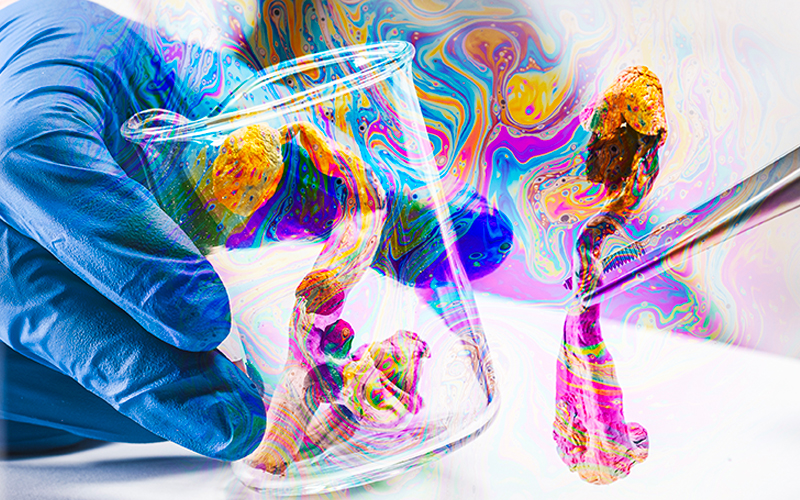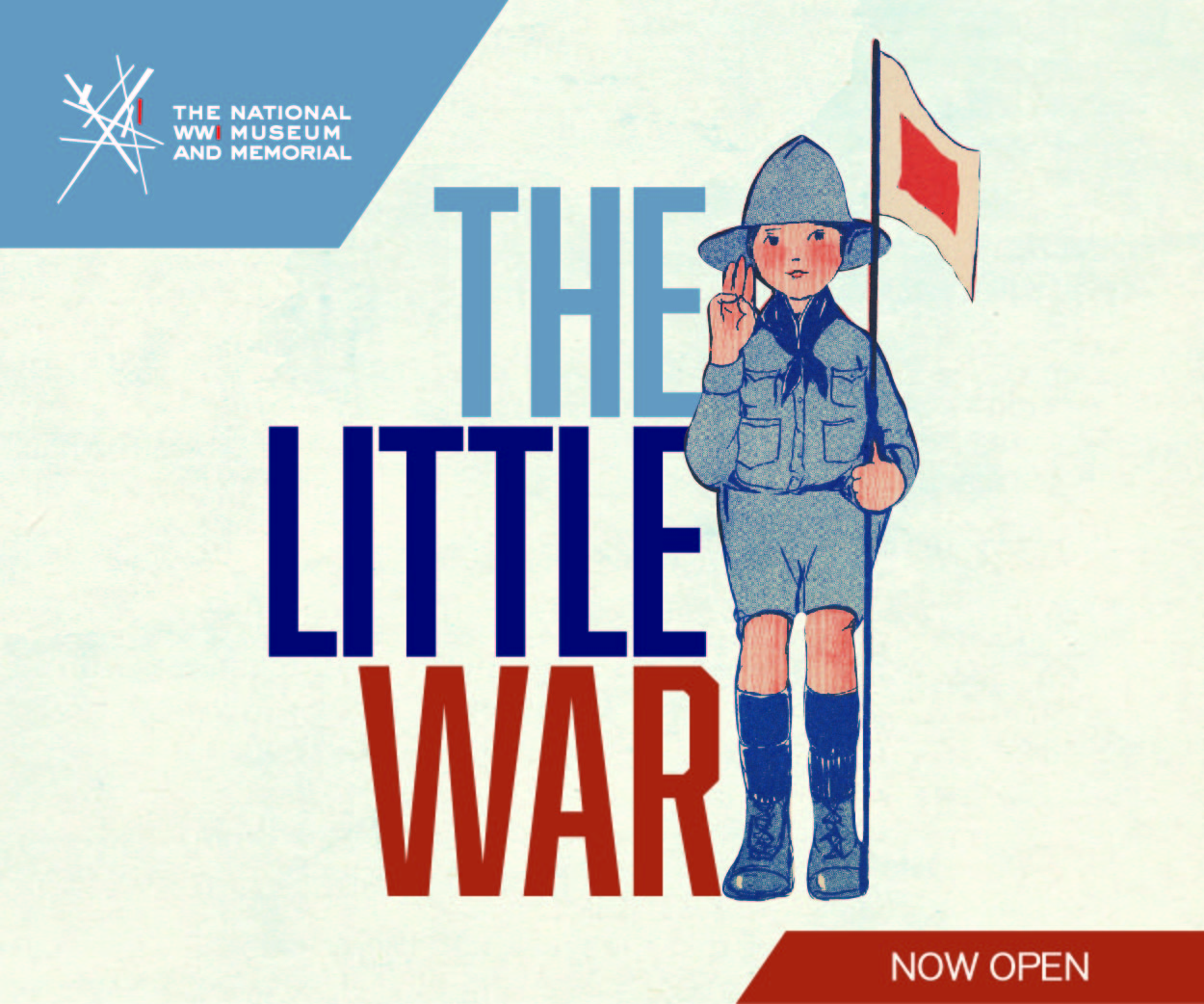
Many people we see every day are walking around with wounds we can’t see—deep tracks in the brain where the same thoughts shuttle back and forth, keeping sufferers in fight-or-flight mode, depression, and hopelessness.
For many years, a retired local police officer dealing with PTSD was one.
He now joins a growing number of Kansas Citians benefiting from psychedelics-assisted therapy.
And it’s working.
“It saved my life,” he says quietly.
After witnessing traumatic events as a first responder, “You see and do things that normal people don’t see and do,” he says of his former “toxic” job. As a result, “My mind was going 1,000 miles an hour,” he recounts. “I tried to find a way to turn it off. I was easily angered. Everything was black and white, fight or flight. My relationships suffered. I got divorced.”
Trying to get better, he went through Warriors’ Ascent, a holistic program designed for combat veterans and first responders. It helped for a while. He tried yoga, meditation, talk therapy. “But my PTSD symptoms just got worse,” he says.
“I did a ton of research on ketamine and decided to start an infusion followed by talk therapy. I go to a ketamine clinic in Lee’s Summit. They hook me up to an IV. I wear an eye mask and listen to a soundtrack. After about 45 minutes, I’m finished. The next day, I talk with Michael VanderWaal (a therapist and licensed medical social worker in Missouri), and I feel like I can breathe again. I am starting to be more open and vulnerable with my kids. There is a pause before I get pissed off.”
In other words, he is healing.
Ketamine, a medically approved tranquilizer used in surgeries, is available in lower doses at clinics around the metro area. Ketamine, legal in both Missouri and Kansas, is one of three psychedelic drugs up for Food and Drug Administration approval for mental health use but has not yet been approved. In fact, the F.D.A. warns: Use of compounded ketamine products without monitoring by a health care provider for sedation (sleepiness), dissociation (disconnection between a person’s thoughts, feelings, and sense of space, time, and self), and changes in vital signs (such as blood pressure and heart rate) may put patients at risk for serious adverse events.
The other two psychedelics being considered include MDMA—a blend of mescaline and methamphetamine known by its street name Ecstasy—and psilocybin or “magic mushrooms.”
While traditional therapies—ranging from talk therapy to prescribed antidepressants to eye movement desensitization and reprocessing (EMDR)—help in some anxiety, depression, and PTSD cases, they don’t move the needle in others.
In response, surprising new players in mental health therapy are emerging—psychedelics. Not the Timothy Leary “bad trip” LSD of the 1960s, not Aaron Rodgers’ ayahuasca, but a new cadre of psychogenic substances with a scientifically proven track record in improving mental health.
Tyler Kjorvestad, M.D., and psychiatrist at the University of Kansas Health System, is also the editor of the Journal of Psychedelic Psychiatry. He sees patients and conducts clinical trials of psychedelics in treating various mental health conditions.
“Timothy Leary set us back 40 to 50 years,” says Kjorvestad, referencing the national backlash that resulted from Leary’s experimentation with LSD in the 1960s. “Psychedelics can be much better than our current standard of care for mental health.”
“Anxiety and depression can become habitual and disrupt the normal feedback system. I grew up on a dairy farm, and I liken neural pathways in anxiety and depression to ruts in the ground. Once they’re there, it’s hard to drive out of the ruts. Medications and psychedelics take a road grader to those ruts,” he maintains.
Because the brain is “plastic” or able to change physically, to a degree, the damage—“the ruts”—can be reparable.
Psychedelics also “turn on large, different portions of the brain” that can facilitate healing, Kjorvestad says.
The National Institutes of Health estimate that 3.6 percent of American adults suffer PTSD, with another eight percent mired in depression, about a third of that is treatment-resistant depression. A recent Gallup survey revealed that 29 percent of adults reported being treated for depression at some time in their lives, a marked increase since 2015.
Michael VanderWaal, the Kansas City therapist treating the retired police officer, was one of them. “I read Michael Pollan’s book How to Change Your Mind when I was pretty disenchanted with the state of mental health care,” he says. VanderWaal was also depressed after his mother, a neonatal nurse, died. He tried psychedelics and felt better, and thought, “If I can do this to help myself, maybe I can also help others.” He explains, “A psychedelic experience can help heal past traumas. Ketamine infusion is a really effective, fast-acting antidepressant. It’s like putting on scuba gear and exploring the coral reef of your own mind. You see things at a more bearable distance and can talk it through.”
And get better.
“It takes a lot to create enough neuroplasticity in the brain to make new neural pathways,” says VanderWaal. “Psychedelics like ketamine allow for significant and lasting change in a short amount of time.”
“Psychedelics could really revolutionize mental health care. A new study in the September issue of the journal Nature about treating PTSD with MDMA for 18 weeks shows that 71 percent of subjects got so much better that they no longer met the PTSD criteria,” he adds.
“Medical approval is the latest route to getting these available to people who need it,” says VanderWaal. “In Michigan, there have been ballot initiatives from grassroots efforts making certain substances legal. And they have long been part of certain spiritual practices.”
Those “aha” spiritual moments are one reason that Shannon Josendale, a Kansas City entrepreneur and reiki master, seeks out ketamine-assisted therapy. “My body was holding onto the past and old patterns,” she says. “I felt very burnt out. I couldn’t get out of my brain.”
She goes to Awakenings KC for her ketamine infusions because of its safety precautions. “They make you feel very safe,” she says. “When you come out, you feel very ‘gooey,’” she says. “I try to write things down as they come to me.”
The next day, she does talk therapy with VanderWaal. “It takes the weight of the world off your shoulders. It makes you realize how amazing we are at our core.”
What concerns Katja Cahoon, a psychedelics-assisted therapist and licensed clinical social worker in Kansas City, Missouri, and Menlo Park, California, is the lack of availability of psychedelics-assisted therapy to those who can’t afford the sessions or don’t live near places that offer it.
Cahoon administers ketamine by a specially compounded lozenge and often does it in a group therapy session. It’s less expensive. Nineteen hours of psychedelics-assisted therapy costs $1,500 each for a group versus $3,800 for an individual. “My mission is to harness the power of the group—first responders healing together, for example,” she says.
She also advises carefully evaluating the therapist you work with, their training and background. “Do they know how to support you?” she urges people to ask. Even though there are plenty of clinics in the Kansas City area offering infusions with no talk therapy follow-up, “Ketamine infusion alone can be damaging if there is no integration afterwards,” she says.
“It’s not a miracle cure,” she counsels. “People who experience this kind of therapy get in touch with themselves. They also go into observer mind—which you can also get from meditation—in which you observe a thought but are not that thought. That’s where therapy can happen. You realize you can change the thought that is holding you back.”
Adds Kansas City therapist Alaina Borra, “Whether there are life-changing outcomes or some symptom reduction, psychedelics-assisted therapy is best at breaking down old patterns, giving people the opportunity to live differently.”
According to Kjorvestad, the approval process for psychedelics will still take some time. “MDMA for treating PTSD is close to F.D.A. approval in 2024. If it is approved, then the Drug Enforcement Administration has 30 days to reschedule the drug to a two or three so it can be prescribed. Then there is a risk evaluation process. And finally, it can go to manufacture.”
Psilocybin trials to treat addiction are currently on the F.D.A. radar for possible late 2025 approval.
It could be worth the wait. “A single day of psychedelics-assisted therapy can take the place of ten years of psychotherapy,” says Kjorvestad. “It is much better than our current standard of care.”
And it’s much better than suffering alone.
“Human beings are built for community,” says the former police officer. “When you have PTSD, you start isolating because you feel differently.”
Now that his symptoms have lessened, he feels better, more connected. “For the first time, I’m hopeful.”


